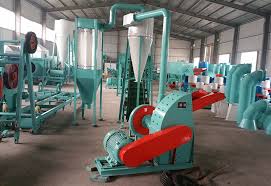The Nigerian Federal Government, through its Ministry of Marine and Blue Economy, has earmarked a substantial N38.3 billion in the 2025 Appropriation Bill to bolster the nation’s marine and blue economy sectors. This ambitious budget prioritizes capital expenditure, with N35.7 billion allocated for various developmental projects, while recurrent expenditure, encompassing overhead and personnel costs, accounts for N2.5 billion. This significant investment underscores the government’s commitment to harnessing the potential of Nigeria’s vast aquatic resources for economic growth and food security.
A key focus of the budget is the enhancement of fish production through strategic investments in infrastructure and capacity building. Recognizing the critical role of affordable fish feed in sustainable aquaculture, the government has allocated N207.3 million for the construction of local fish feed mills across the six geopolitical zones of the country. This initiative aims to address the persistent challenge of high feed costs, which has long hampered the growth of the fish farming sector. Furthermore, an allocation of N151 million is dedicated to developing post-harvest infrastructure to minimize losses and maximize the value derived from fisheries and aquaculture products.
Beyond fish production, the budget addresses other crucial aspects of the marine and blue economy. Acknowledging the importance of reliable power supply for operational efficiency, the ministry has budgeted N185 million for the provision and installation of solar panels and inverters. This investment in renewable energy aligns with the global push for sustainable practices and reduces reliance on conventional power sources, potentially lowering operational costs in the long run. Furthermore, the government recognizes the need for financial institutions tailored to the specific needs of the maritime sector. Consequently, N119 million has been allocated for the establishment of a regional maritime development bank, which is expected to provide specialized financial services and facilitate investment in maritime projects.
The budget also includes provisions for essential operational resources. Recognizing the importance of maritime mobility and enforcement, N300 million has been allocated for the purchase of sea boats, enabling enhanced surveillance, patrol, and response capabilities within Nigeria’s territorial waters. Additionally, the ministry has budgeted N333.6 million for acquiring motor vehicles to support its administrative and operational activities. Further allocations address critical infrastructure needs, with N191.5 million designated for rehabilitation and repair works, and N54 million specifically allocated for environmental preservation initiatives, reflecting the government’s commitment to sustainable development.
Stakeholders in the fisheries sector have expressed cautious optimism about the proposed initiatives, particularly the establishment of local fish feed mills. The Fisheries Cooperative Federation of Nigeria (FCFNL) lauded the government’s plan, acknowledging its potential to significantly reduce feed costs and boost fish production. However, the FCFNL also emphasized the importance of effective implementation and sustainability, urging the government to utilize locally sourced raw materials for feed production to further reduce costs and enhance local value addition. They also stressed the necessity of engaging stakeholders in the industry to ensure the long-term success of these initiatives.
The envisioned success of the proposed investments hinges on several factors, including effective project implementation, stakeholder collaboration, and a commitment to sustainable practices. If successfully executed, these initiatives hold the potential to transform Nigeria’s marine and blue economy, contributing significantly to food security, job creation, revenue generation, and improved protein intake for the population. The focus on local content, particularly in fish feed production, could stimulate local economies, create employment opportunities, and reduce reliance on imported inputs. The development of post-harvest infrastructure is crucial for minimizing losses, increasing the value of fisheries products, and enhancing the livelihoods of those involved in the value chain. The investment in renewable energy sources demonstrates a forward-thinking approach to sustainability, potentially reducing operational costs and minimizing the environmental footprint of the ministry’s activities. Finally, the establishment of a regional maritime development bank could provide crucial financial support for maritime projects, fostering growth and innovation within the sector. Overall, the 2025 budget for the Ministry of Marine and Blue Economy reflects a comprehensive strategy to unlock the potential of Nigeria’s aquatic resources and drive sustainable economic development.














